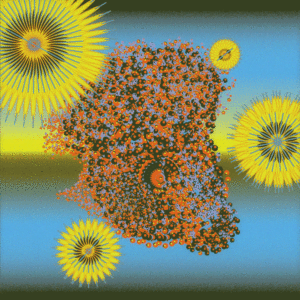Toward a psychiatry of resilience
As long as we don’t have too much of it, stress makes us stronger, more competent and able to make better decisions

The term “trauma” is often misused to refer to any form of stress — from physical abuse to test anxiety. Trauma is the focus of my research, and I know as well as anyone how harmful trauma can be. Yet, not every stressful experience is traumatic; and not all stress is bad.
As a culture, we’ve pathologized stress, casting it as a villain — a threat to our mental health that must be avoided, rooted out and vanquished. Too much stress is harmful, but I’ve seen in my patients that some stress is crucial to healthy development. Without it we grow weaker, more vulnerable and less resilient, as individuals and as a society.
So, while trauma and other forms of distress deserve our attention, they’re not the entire story. The rest of the story — capacity for strength, resilience and adaptability — is getting short shrift in our clinics, labs and broader society. For this reason, I’m calling for a reset and reframe, shifting to an approach centering on resilience, strength and adaptability — not pathology.
Research by the Stanford Early Life Stress and Resilience Program, which I direct, has found that strengthening self-confidence and awareness of one’s coping abilities improves the function of the brain’s frontal lobe. In other words, triumphing over challenges can bolster frontal lobe function, which means improved decision-making, focus, emotional self-control and social skills.
Our evidence-based, longitudinal studies have also demonstrated that children who practice mindfulness meditation — engaging in appreciation of the moment, regardless of how stressful life might be — get better sleep, which supports their psychological well-being.
The approach I’m advocating is attentive to the entire patient, their medical, personal and psychiatric histories, bringing together expertise on different areas of life, including nutrition, exercise and sleep.

What’s giving us hope amid a global mental health crisis? Hear from podcast host Maya Adam in conversation with professors or psychiatry and behavioral health Victor Carrión and Laura Roberts.
Toward this vision, I encourage patients to employ stress to build confidence, competence and self-determination — not to wholly eliminate it from their lives. Consider, for example, the hypothetical case of Chris, a 10-year-old with acute social anxiety who was getting into fights at his new school. Chris had recently begun splitting time between his newly divorced parents’ apartments, which were in a new school district. It was during transitions from his mom’s to his dad’s that Chris became most upset.
Together, we decided that rather than avoid or eliminate the stressors that triggered Chris’ anxiety — transitions between homes and school — we would anchor on his strengths, which included his ability to bike and his reliable and caring relationships with his parents, his older sister and his dog. When it was time for the siblings to move to their dad’s each Wednesday, rather than getting a ride from their father, they would walk or bike with their dog the 3 miles to his place.
These trips became fun adventures that bolstered Chris’ self-confidence. He settled into his new school and began to build friendships, his anxiety became manageable and violent incidents tapered off. Chris learned that he was more than a diagnosis and that by anchoring on his strengths and capabilities he could meet future challenges as they arise.
By shifting from a pathology-centered model into a strength- and competency-based one, we not only better support individuals to help themselves but also to help others. Resilient individuals live more fulfilled lives and are better equipped to help each other and contribute to a more resilient society.
— Victor Carrión is the Endowed John A. Turner, MD, Professor for Child and Adolescent Psychiatry.
